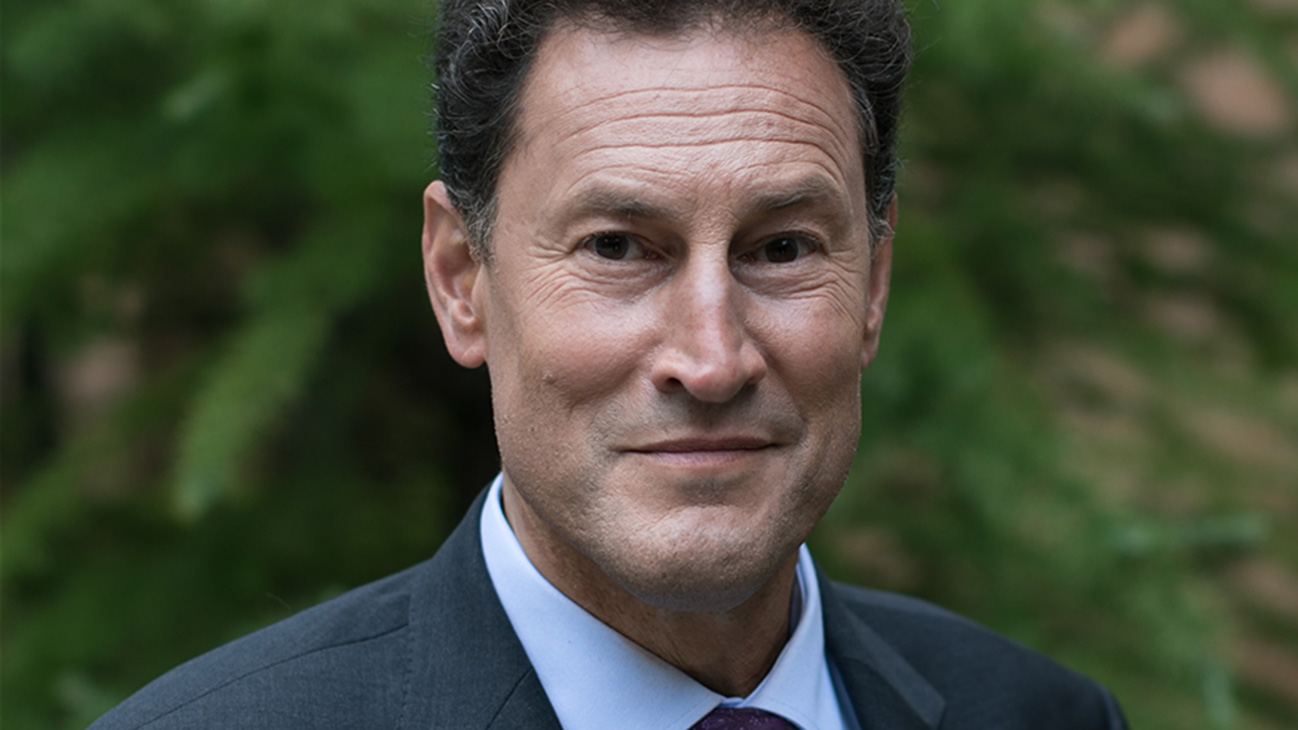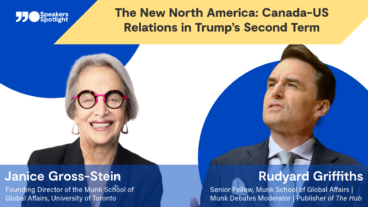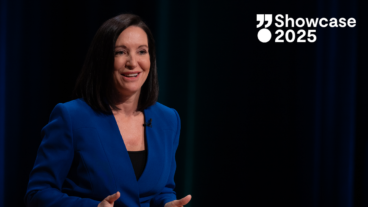For 19 seasons, Steve Paikin was the anchor of TVO’s flagship news program, The Agenda with Steve Paikin. As one of Canada’s most respected journalists, he brought intelligent analysis and thoughtful discourse to the most pressing issues of our time, interviewing everyone from presidents and prime ministers to everyday Canadians making extraordinary contributions to society.
When The Agenda wrapped production in June 2025, Steve embarked on an exciting new chapter. He’s launched The Paikin Podcast and started a bi-weekly column for the Toronto Star, while still co-hosting TVO’s #onpoli podcast and working on new books and documentaries.
We recently sat down with Steve to explore his transition from full-time broadcaster to multimedia freelancer and what’s driving his new podcast venture, and to reflect on the remarkable legacy he’s built over four decades in Canadian journalism. Steve also shared his insights into today’s increasingly complex political climate and what leaders should be watching as we head into the fall — including why this may be the most unstable time in our country’s history since World War II.
Life After The Agenda
Speakers Spotlight: TVO has been your home for over 30 years. What’s this transition into the next stage of your career been like?
Steve Paikin: The transition out of being a full-time employee at TVO to a freelancer has been fascinating. I’m very much enjoying the freedom to — and you’ll forgive the pun — set my own agenda.
After the television show ended, I decided to bite off as much as I could. I’m producing a documentary. I’ve started The Paikin Podcast. I’ve started a new biweekly column in the Toronto Star. I’m talking to three post-secondary campuses about doing something with them. And I’m also writing three books simultaneously. I’ve written nine already, but only ever one at a time, so I thought, this will be a good challenge… let’s try three at once. So many people come up to me thinking I’ve retired because The Agenda is over. On the contrary! It’s a very full calendar.
SpSp: Congratulations on your new podcast, The Paikin Podcast. What sparked your interest in launching your own podcast? What are you excited to explore in this media format?
SP: What sparked my interest? I guess the notion that even though I’m 65 years old, I didn’t think I was done. I’m still the most curious person I know. So, despite finishing up The Agenda on TVO after 19 seasons, there was still a lot of stuff out there I wanted to do. Podcasting has always fascinated me. It’s a new medium, so I thought I’d give it a shot. I’m obviously starting small, walking before running, but I am excited to see where it will all end up. Go to stevepaikin.com for all the details!
SpSp: How does the intimacy and flexibility of podcasting compare to television? How has your approach to interviewing and content changed?
SP: So far, I have to say the intimacy of podcasting is not the same as having somebody on the set two feet away from you in a television studio. The way I do the job is no different. After 43 years in journalism, I’m not about to start doing a Joe Rogan-type podcast. I’m still going to bring what I hope are the same principles of fairness and honesty to the job that I do.
Reflecting on The Agenda’s Legacy
SpSp: The Agenda ran for 19 successful seasons. What do you consider your most memorable or impactful interviews from the show’s run?
SP: Very hard to pick out of the tens of thousands that I have done. I’ve been very lucky to interview some heavy hitters: Presidents Bill Clinton and Jimmy Carter, Soviet leader Mikhail Gorbachev, every Prime Minister from John Turner to Mark Carney, every Ontario Premier from Bill Davis to Kathleen Wynne. But if pushed, I guess I’d have to say my favourite interview was the very last one I ever did. It was with my 91-year-old father, who took a bus and a subway in from Hamilton to come to the studio to do the last ever interview on The Agenda. That was beyond joyous.
Moderating Canada’s Political Heavyweights
SpSp: You’ve moderated nine federal and provincial leaders’ debates — more than almost anyone in Canadian journalism. What do you enjoy about it?
SP: When they’re over! There’s nothing I’ve done in my career that is more nerve-wracking than hosting leaders’ debates during elections. You really don’t wanna mess up. The fact that they’ve asked me to do so many suggests, I hope, that I haven’t.
SpSp: You’ve seen leaders at their most combative and most vulnerable on the debate stage. What have you learned about politicians under that kind of pressure?
SP: Strangely enough, doing well in a leaders’ debate doesn’t necessarily mean you’re going to be successful as a Prime Minister or a premier. Dalton McGuinty was never particularly good during leaders’ debates, and yet he was the most successful Liberal premier of Ontario in nearly 130 years. David Peterson wasn’t particularly good during leaders’ debates, and yet he won the biggest majority government in Ontario history. Jean Chrétien was just OK at leaders’ debates, and yet he won three straight majority governments. It’s actually the rare politician whose skills are both good on the debate stage and in the Prime Minister’s office. I put Brian Mulroney in that category.
The Evolving Media Landscape
SpSp: You’ve worked across radio, print, television, and podcasting. How has the media landscape changed since you started decades ago?
SP: Cataclysmic would be my answer. I can remember when I started tape recording interviews, I used to bring the tape back to my office and use an actual razor blade to cut the tape to edit my reports. It sounds completely prehistoric nowadays, but that’s the way it was. Today, things are just completely shocking in both positive and negative ways. I’m mortified that so many newspapers have been dying over the past decade. but some of the digital offerings that have taken their place have been quite interesting. Where it all ends up, who knows?
SpSp: At this stage of your career, what drives your curiosity?
SP: I don’t know the answer to that. I know at the very least I have been blessed with an insatiable curiosity that has allowed me to go to work every day for 43 years with a drive to learn something new. As long as I have that drive, I can’t imagine not doing what I’m still doing.
Canada’s Political Crossroads: What to Watch in the Fall
SpSp: As someone who has been immersed in in politics for decades, what are you watching as we head into the fall? Is there something you think leaders should be paying attention to and why?
SP: I suspect if you ask 10 different observers of Canadian politics that question, you’ll get the same 10 answers from all of us. We are obsessed right now with our deteriorating relationship with the US. Regardless of which party or leader was in power, either federally or provincially, this was going to be a nearly impossible time to govern, given who’s in the White House.
My sense of things is that the vast majority of Canadians think Donald Trump is unfit to be president. But unfortunately, we’re stuck with him for at least another three and a half years, and maybe more. For those of us who watch this stuff for a living, it’s both fascinating and extremely concerning. But to me, how we navigate our way through the next few years is pretty clearly the number one story regardless of where you live in Canada.
I was interested to talk to Janice Gross Stein from the University of Toronto the other day, who said this is the least stable most concerning time in the history of our country since the end of World War II. Worse than the Cold War, when we had nearly 20,000 Soviet nuclear missiles facing us. Her point is that at least back then we had institutions and channels in place that could safeguard when things felt as if they were spiralling out of control. Today, we don’t have that. We have a man in the White House, who wants to bust up all of those institutions and pursue his own understanding of things. That makes Janice very nervous. And if she’s nervous, then I’m nervous too! Now, if that doesn’t get your attention, I don’t know what does.
Bring One of Canada’s Most Trusted Political Voices to Your Event
Steve Paikin‘s decades of experience covering Canadian politics, combined with his signature blend of insight and humour, make him an invaluable resource for organizations navigating today’s complex political landscape. Whether you need a keynote speaker who can translate political developments into practical business implications, or a seasoned moderator to guide your most important conversations, Steve brings unmatched expertise and credibility to every engagement.
Newly exclusive with Speakers Spotlight — contact us to learn more about Steve and to book him as a keynote speaker or host/moderator for your upcoming event.




